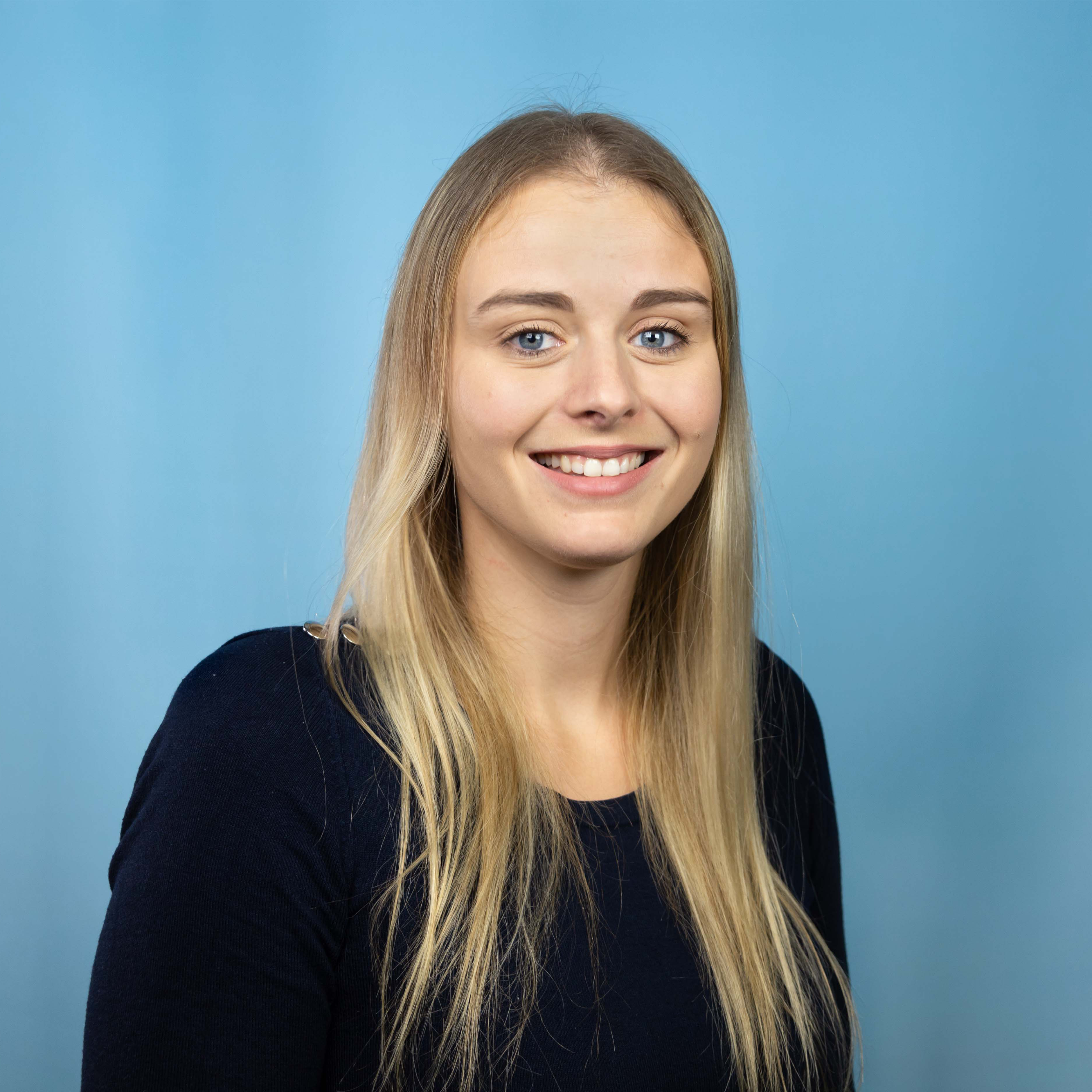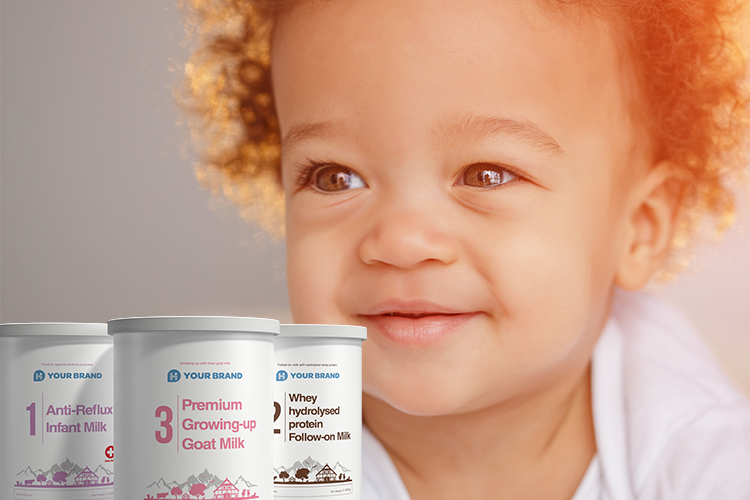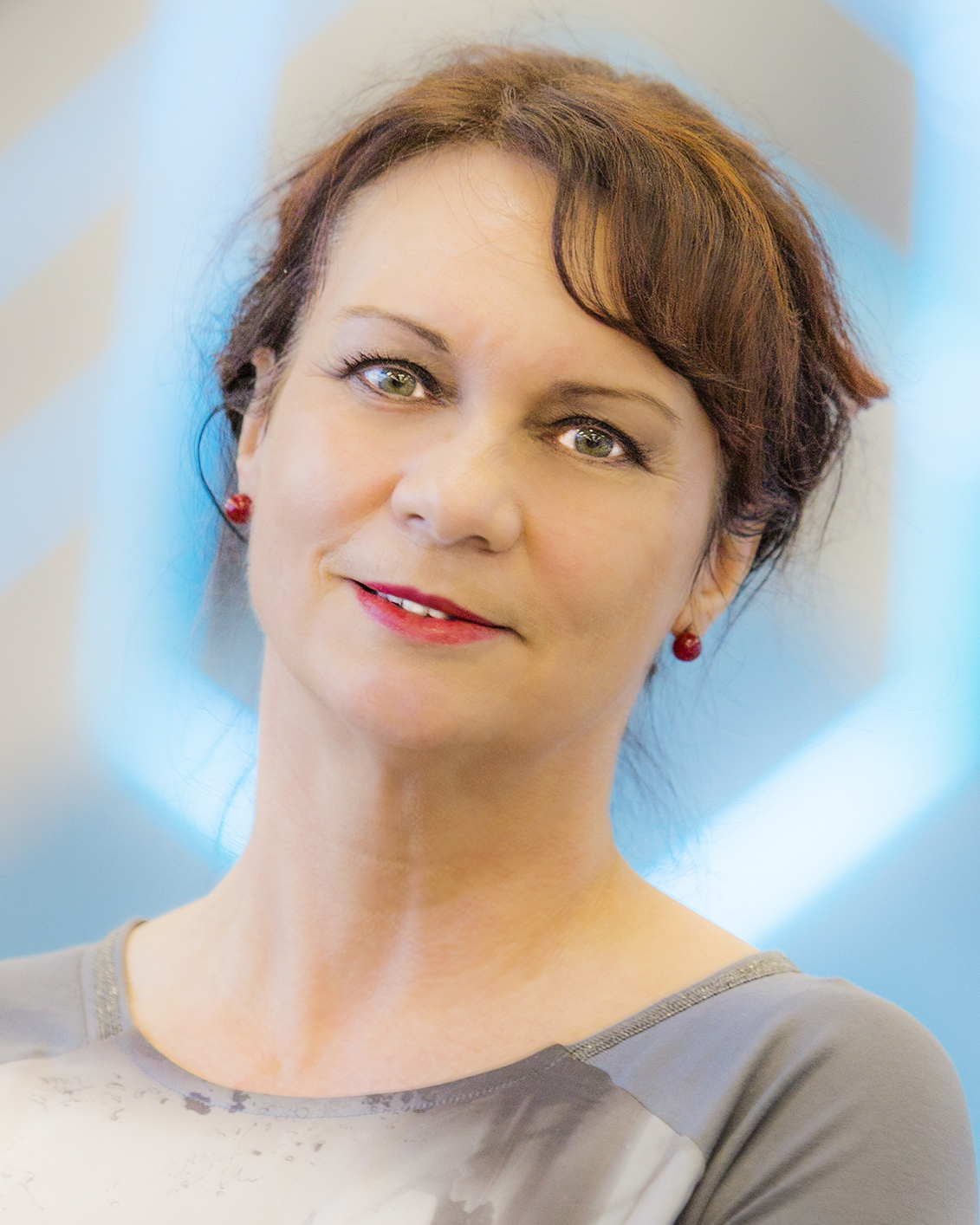 A major change in the law relating to foods for infants and young children is about to come into force. From 22 February 2020, all infant formula sold in the EU and Switzerland must comply with the requirements of the new EU regulation on infant and follow-on formula. Our Baby Care division is in the final stages of transition – just the right time to take a look behind the scenes of our development team. We spoke to the Deputy Head of Baby Care Development. Madeleine Widmer is one of the project managers responsible for development and applications; she supports customer projects and is jointly responsible for various formulations.
A major change in the law relating to foods for infants and young children is about to come into force. From 22 February 2020, all infant formula sold in the EU and Switzerland must comply with the requirements of the new EU regulation on infant and follow-on formula. Our Baby Care division is in the final stages of transition – just the right time to take a look behind the scenes of our development team. We spoke to the Deputy Head of Baby Care Development. Madeleine Widmer is one of the project managers responsible for development and applications; she supports customer projects and is jointly responsible for various formulations.
What is the role of the Baby Care development team?
Madeleine Widmer: We are responsible for the developing formulations and optimising of infant formula – starting with the raw materials and right up to supporting the first production. We distinguish between two different types of projects. One is the development, optimisation and maintenance of our own formulations. The other is developing formulations in response to specific customer requests. Both types of projects include tasks such as raw material evaluation, trial production, storage tests, as well as the co-organisation of analyses, the preparation of specifications and support during initial production. Working with the other departments is crucial.
Which areas do you see as particularly important for cross-departmental cooperation?
Madeleine Widmer: As a development department, we are in constant contact with other departments. The sales department, for example, is responsible for new orders. We in turn advise the sales department and help with the specific formulation requirements from customers. We discuss the specifications and promotion opportunities with the marketing department. The quality assurance staff check the formulations in terms of the statutory requirements. They are responsible for the analysis and let us know if there are any discrepancies. We procure the required raw materials through purchasing and carry out the tests with production. The planning department ensures that we can schedule our experiments alongside the regular production. We work very closely together; our job would not be possible without this mutual support.
The new EU regulations require a change to all the infant formula products sold in the EU and Switzerland. What was your procedure for adapting the formulations?
Madeleine Widmer: First, we had to compare our existing formulations with the new nutritional specifications. The relatively extensive changes meant it was necessary to redesign the formulation portfolio. We also used the update as an "upgrade" by making improvements and adjustments to our own formulations. After preparing the formulations in theory, we started with the first experiments in the lab. We mixed all the ingredients together and carried out the first tests there. This was followed by small trials. These provided information on the expected behaviour of the products at the large spray towers. The first tests were then carried out on the large spray towers subsequently. We tested how well the mix can be sprayed and what performance we could achieve. It’s a step by step process to achieve the ideal product.
What difficulties were associated with developing the new formulations?
Madeleine Widmer: Some nutritional adjustments are easier to implement than others. We already knew from experience, for instance, that increasing the amount of polyunsaturated fatty acids has a negative effect on the oxidation stability. The fat becomes "rancid", which is perceptible in the smell and taste of the infant formula. It was our job to find a solution to this problem. We know that copper and iron promote oxidation and that we can slow this procedure down by changing the process.
What were the greatest challenges you faced in optimising the process?
Madeleine Widmer: You need to know the entire system and keep an overview of all the influences. It’s not enough for me to know what effect it has on production when I change components in the recipe; I also need to know what impact these changes have on other areas. When you change a raw material, it is important to check the current stock and observe the ongoing contracts with suppliers. You can't just replace components that are registered in China, for example. When it comes to optimising processes, it is important to keep an eye on all the different factors and their impact on the process. That is one of the biggest challenges.
Where do you spend most of your time and where do you like working most – in the office, the laboratory or the production line?
Madeleine Widmer: The laboratory and production are only a small part of the working day, but I really enjoy the time I spend there. When we have developed new formulations it is exciting to see how they behave with my own eyes and experience how our theory is put into practice. Working in different areas also creates variety in my work, as I spend about 90% of my time in the office.
What is the most exciting part of your job?
Madeleine Widmer: Conducting and supervising tests on the pilot plant or directly in production fascinate me the most. The tests show how the formulations we develop can be sprayed, the difficulties that have to be overcome and the optimisations that are required for long-term production of the formulations on the plant. It’s a moment you have been working towards for a long time. It is a milestone for product development.
Thank you for talking to us and providing an exciting insight into your work.
Further information










Leave a comment